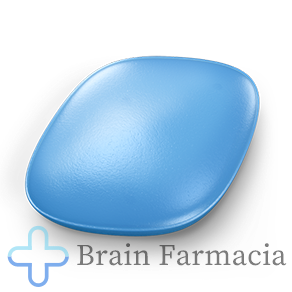Understanding Pharmaceutical Compounds
\tPharmaceutical compounds are the active ingredients responsible for the therapeutic effects of medications. These compounds are carefully selected and formulated to ensure optimal efficacy and safety. They can be derived from various sources, including plants, animals, minerals, or synthesized in laboratories.
\tHow Pharmaceutical Compounds Work
\tWhen ingested or administered, pharmaceutical compounds interact with the body's biological systems to produce a desired therapeutic effect. They can target specific receptors, enzymes, or processes within the body to alter biochemical pathways and restore balance. Pharmaceutical compounds are meticulously designed to ensure they demonstrate the desired potency, stability, and selectivity.
\tAdditionally, pharmaceutical compounds undergo rigorous testing to ensure their safety and efficacy. Clinical trials are conducted to evaluate their therapeutic benefits, potential side effects, and overall risk-benefit ratio. Regulatory authorities closely monitor the development and approval of pharmaceutical compounds to safeguard public health.
\tThe Importance of Medication Adherence
\tMedication adherence refers to the extent to which patients follow the prescribed dosage, timing, and frequency of their medications. It plays a crucial role in achieving optimal treatment outcomes and managing chronic conditions effectively. Non-adherence can lead to compromised therapeutic benefits, disease progression, and increased healthcare costs.
\tFactors Impacting Medication Adherence
\tSeveral factors influence medication adherence, including patient-related factors, healthcare system factors, and medication-related factors. Patient-related factors can include forgetfulness, lack of understanding about the importance of medication, or concerns about side effects. Healthcare system factors may involve complex medication regimens, inadequate communication, or limited access to healthcare services. Medication-related factors can encompass dosing frequency, complexity of administration, or undesirable side effects.
\tImproving medication adherence requires a collaborative effort from healthcare providers, patients, and caregivers. Healthcare professionals can facilitate adherence by providing clear instructions, simplifying medication regimens, and addressing concerns and misconceptions. Patients can enhance adherence by using reminder tools, establishing routines, and seeking support from healthcare professionals when needed.
\tThe Role of Probiotics in Gut Health
\tProbiotics are live microorganisms that confer health benefits when consumed in adequate amounts. They primarily exert their effects in the gastrointestinal tract, where they help maintain a healthy microbial balance and support proper digestion and nutrient absorption. Probiotics are commonly found in certain fermented foods and are also available as dietary supplements.
\tBenefits of Probiotics for Gut Health
\tProbiotics can promote digestive health by replenishing beneficial bacteria in the gut, which may have been depleted due to factors such as antibiotics use or an unbalanced diet. They can alleviate symptoms of gastrointestinal disorders like irritable bowel syndrome, improve bowel regularity, and reduce the risk of certain infections. Probiotics have also shown potential in supporting the immune system and reducing inflammation in the gut.
\tIt's important to note that different strains of probiotics have specific mechanisms of action and may offer varying benefits. Consulting with a healthcare professional is recommended to determine the most suitable probiotic strain and dosage for individual needs.






